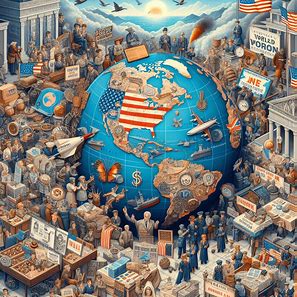The Disruption of Netflix
The Disruption of Netflix
Netflix’s rise from a DVD rental service to a global streaming giant represents one of the most significant disruptions in the entertainment industry. Founded by Reed Hastings and Marc Randolph in 1997, Netflix initially operated as a DVD rental-by-mail service, competing with traditional video rental stores like Blockbuster. However, it was Netflix's early recognition of the potential of digital streaming that set it on a path toward industry disruption. In 2007, Netflix transitioned into streaming, offering customers the ability to watch movies and TV shows online instantly. This shift was a game-changer, as it capitalized on the increasing availability of high-speed internet and changing consumer preferences.
Netflix’s success in streaming was fueled by its ability to predict the future of media consumption. By offering a large library of content at a low price, the company quickly attracted millions of subscribers, particularly as people began to seek convenience over the traditional model of cable television. Unlike cable companies, which required long-term contracts, Netflix’s subscription-based model with no commitment gave consumers the flexibility they craved. This shift marked the beginning of the decline of cable TV and the rise of digital streaming platforms.
One of the pivotal moments in Netflix’s evolution was its decision to produce original content. In 2013, Netflix released its first original series, House of Cards, which marked the company’s entry into content creation. The success of House of Cards proved that Netflix could not only distribute content but also produce it, offering a competitive edge over other streaming services. This move led to a wave of original programming, including hits like Stranger Things, The Crown, and Orange is the New Black, establishing Netflix as a major player in the entertainment industry.
Netflix’s investment in original content also fundamentally changed how television was produced and consumed. Traditional networks and studios operated under a weekly release schedule, but Netflix’s approach was different: it released entire seasons of shows at once, allowing viewers to binge-watch content at their own pace. This model resonated with audiences, further solidifying Netflix’s position as the go-to platform for on-demand entertainment. The success of this model has since been adopted by other streaming services like Amazon Prime Video, Disney+, and Hulu.
As Netflix continued to grow, its impact extended beyond entertainment. The company has played a significant role in shaping global pop culture, with its content becoming a source of conversation across social media and traditional media. Netflix’s global expansion, starting with Canada in 2010 and expanding to over 190 countries by the mid-2010s, helped the company become a cultural phenomenon with a truly international audience. The platform’s global reach also meant that it could produce content from different countries, offering audiences diverse shows and movies from around the world.
Despite its many successes, Netflix has faced challenges in recent years. The streaming market has become increasingly competitive, with new players entering the space and established media companies launching their own services. The rising cost of producing high-quality original content and the need to continually invest in technology and infrastructure have put pressure on Netflix’s profitability. Additionally, Netflix’s strategy of borrowing large sums of money to finance its content and operations has raised concerns among investors.
However, Netflix’s disruption of the entertainment industry remains undeniable. Its ability to predict the future of media consumption, innovate with original programming, and adapt to changing consumer preferences has solidified its place as one of the most influential companies in modern media. The company continues to evolve, exploring new ways to engage its audience, including expanding into gaming and interactive content. The future of Netflix will likely continue to shape the entertainment landscape as it navigates the growing competition and technological changes.




Comments
Post a Comment